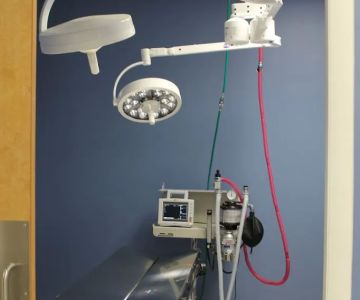How Much Does a Registered Veterinary Technician Make? Salary Insights and Career Path
- 1. Overview of a Registered Veterinary Technician's Salary
- 2. Factors That Affect a Veterinary Technician's Salary
- 3. Career Opportunities for Registered Veterinary Technicians
- 4. Training and Certifications Impact on Earnings
1. Overview of a Registered Veterinary Technician's Salary
As a registered veterinary technician (RVT), I’ve often been asked about how much one can expect to earn in this rewarding yet demanding career. The short answer is that the salary of an RVT can vary widely depending on location, experience, and the type of veterinary practice they work in. In general, the average salary for a registered veterinary technician in the United States ranges from $30,000 to $45,000 per year.
When I first started as an RVT, I was curious about the salary expectations in this field. I was surprised to learn that the starting salary for many entry-level RVTs is around $30,000, but with experience, additional certifications, and specialized skills, salaries can increase significantly. For example, in larger metropolitan areas, an RVT can earn a higher salary due to the increased cost of living and the demand for skilled professionals. In fact, some RVTs in high-demand urban regions can make over $50,000 annually.
2. Factors That Affect a Veterinary Technician's Salary
The salary of a registered veterinary technician isn’t set in stone; several factors can influence how much an RVT earns. Understanding these factors can help you set realistic salary expectations and guide your career choices. Here are the key factors that affect an RVT’s salary:
Location
As with most professions, location plays a crucial role in determining salary. I’ve noticed that RVTs working in large cities tend to make more than those working in rural areas. This is largely due to the higher cost of living and the demand for veterinary services in metropolitan regions. For instance, an RVT working in New York City or Los Angeles can expect to earn significantly more than someone in a smaller town or rural area. The competition for skilled veterinary professionals in these areas is fierce, which drives up salaries.
Experience
Another factor that directly influences earnings is experience. I’ve personally seen my salary grow as I’ve gained more experience in the field. Entry-level RVTs typically earn lower salaries, but as they gain years of experience, their pay tends to increase. Many RVTs see salary increases after five to ten years of practice. In addition, RVTs with specialized skills, such as anesthesia or dental care, may have a higher earning potential due to the demand for these services.
Type of Practice
The type of veterinary practice you work in can also have a significant impact on salary. For example, RVTs working in specialty clinics or emergency care facilities often earn more than those working in general veterinary practices. I’ve worked in both settings, and I can confirm that specialty practices often offer higher pay due to the complexity and intensity of the work involved.
3. Career Opportunities for Registered Veterinary Technicians
The career path for an RVT can be both fulfilling and diverse, offering various opportunities for career growth. As I’ve gained experience, I’ve discovered that there are numerous avenues for advancement, both in clinical and non-clinical settings.
Clinical Roles
In clinical settings, RVTs can specialize in different areas of veterinary medicine, such as dental care, anesthesia, or radiology. I’ve always had an interest in anesthesia and pain management, and after receiving additional training in this area, I was able to command a higher salary. These specialized roles often require additional certifications, but they also provide more opportunities for increased earning potential.
Non-Clinical Roles
For RVTs who want to transition out of clinical work, there are also opportunities in non-clinical roles such as veterinary education, research, or sales. I’ve known several RVTs who transitioned into roles with veterinary pharmaceutical companies, training other veterinary professionals or providing product support. These roles often come with salaries that exceed those in traditional clinical practice and can offer a broader career scope.
Leadership Positions
Some RVTs choose to take on leadership roles within veterinary practices, such as managing a veterinary hospital or becoming a lead technician. These positions usually come with higher salaries and more responsibilities. I’ve seen colleagues move into management positions after demonstrating their leadership skills, which provided both career satisfaction and an increase in pay.
4. Training and Certifications Impact on Earnings
While a basic veterinary technician degree is essential to becoming an RVT, additional training and certifications can make a significant difference in both job satisfaction and salary potential. I personally invested in continuing education and obtained several certifications that have enhanced my skills and boosted my earning potential. For instance, I received certification in veterinary dentistry, which allowed me to take on specialized dental cases and significantly increase my income.
Specialized Certifications
There are many certifications available to RVTs, such as Certified Veterinary Technician in Anesthesia (CVT-A), Certified Veterinary Technician in Dentistry (CVT-D), and more. These certifications not only expand your knowledge but also increase your credibility and marketability in the veterinary field. In my case, obtaining these certifications opened doors to higher-paying opportunities and roles that I never would have had access to otherwise.
Advanced Education
In addition to certifications, some RVTs choose to pursue advanced education, such as a bachelor’s or master’s degree in veterinary technology or related fields. This can lead to even higher salaries, especially in roles like veterinary technician educator or researcher. Continuing education is one of the best ways to stay ahead in this field and increase your earning potential over time.











